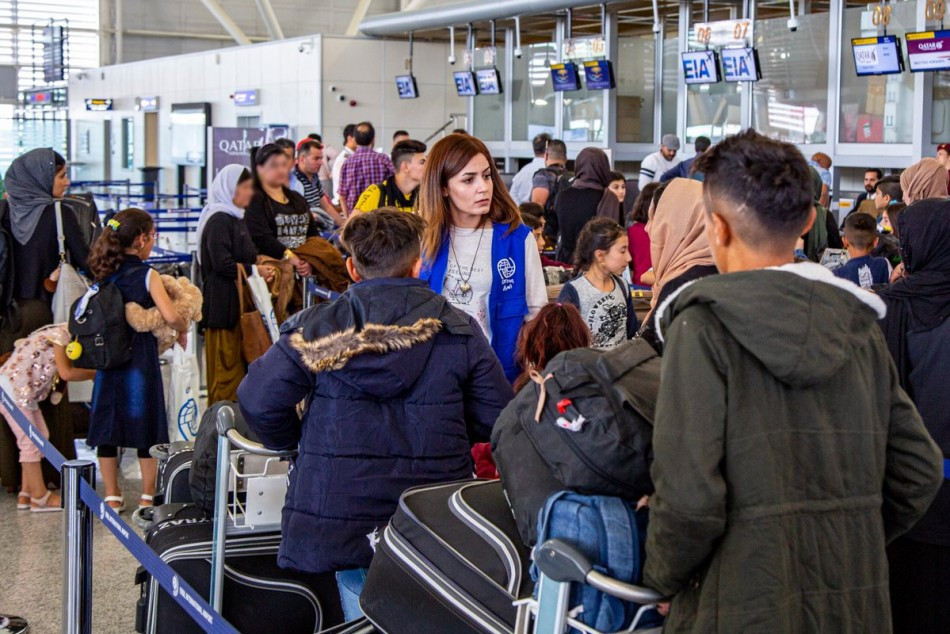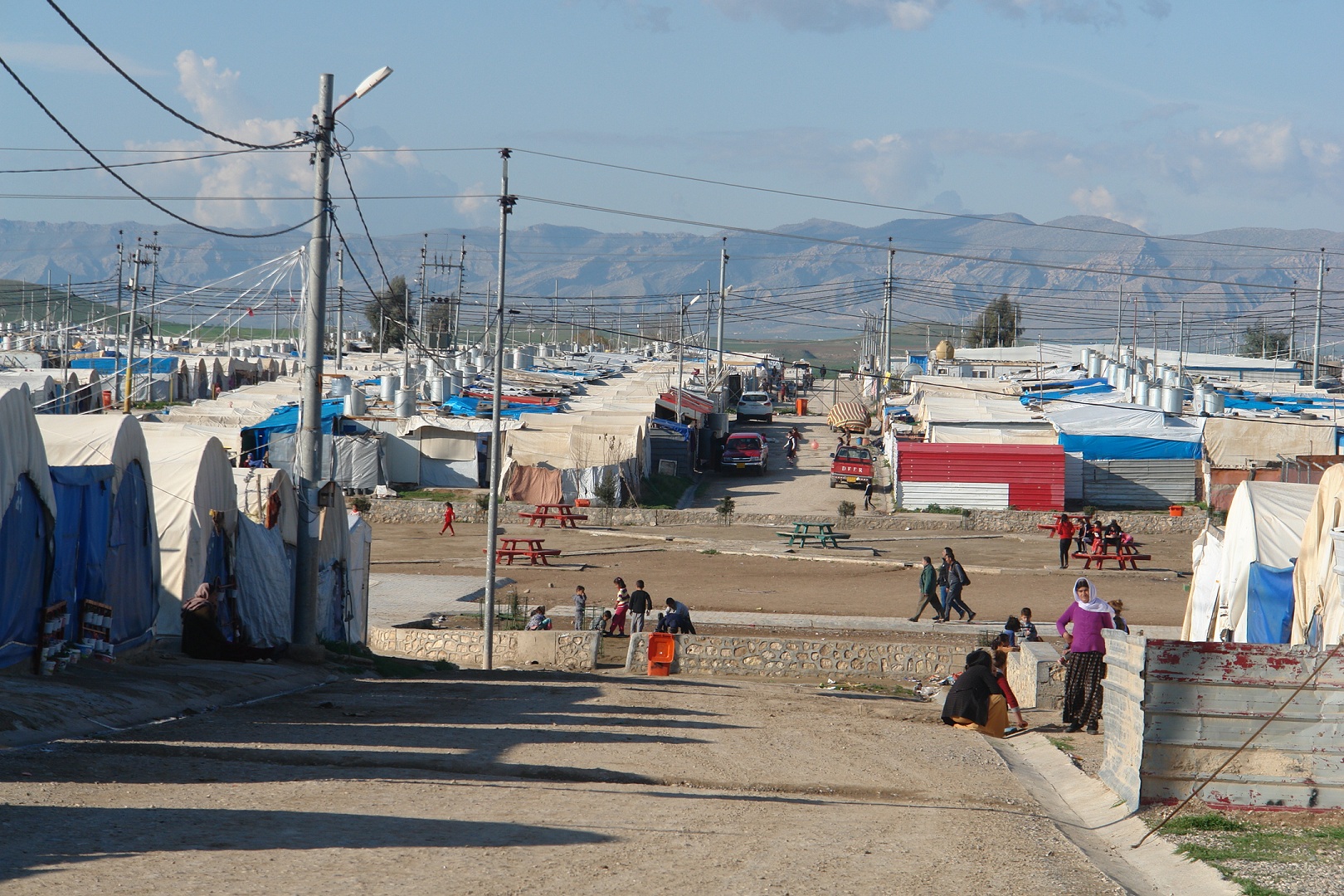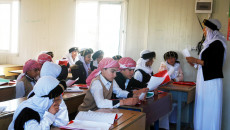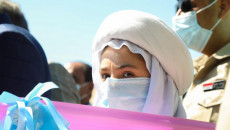Amid social protest and religious rejection, 6 of the 11 Ezidi women whom left camps to unite with their children born under so-called Islamic State ISIS slavery, left their children behind for the second time and chosen their community.
The leader of Ezidis Mir (Prince) Tahsin filed lawsuit against the NGO moderated reunion of the mothers with their children on Iraqi-Syrian borders.
“Mir sued the organization, mediator, and expressed his protest to the Kurdistan region government and the United Nations,” said Jawhar Ali, deputy of Ezidi Prince, Mir, for media and communication affairs. “We did not keep silent and continue our follow ups.”
“Mir sued the organization, mediator, and expressed his protest to the Kurdistan region government and the United Nations,” said Jawhar Ali, deputy of Ezidi Prince, Mir, for media and communication affairs. “We did not keep silent and continue our follow ups.”
Early March, 11 Ezidi women survivors of slavery by extremist Islamic state ISIS left camps of Internally Displaced Persons IDP in Duhok Northern Province to unite with their children born from IS fighter. The prearranged secret process sparked anger in the Ezidi community as Ezidi religion does not recognize children from a non-Ezidi parent.

Erbil, May 2019- Over 1,000 Ezidis relocated to France. Photo by International Organization for Migration IOM.
The NGO who moderated the reunion has denied to talk to KirkukNow whom preferred not to disclose its identity for safety and security reasons. It is registered by KRG and allowed to offer aid in IDP camps.
KirkukNow has come to know that 11 women left camps for the reunion while Mir representative said out of 9 women and girls, six has come back to camps and did not want to stay with the children and only three have not returned yet.
“They came back due to our efforts. We have said several times the issue of welcoming and adoption of Daesh kids a red line and it is over. If we are not consulted in any Ezidi affair, we reject it and strongly condemn it,” Prince deputy emphasized.
“They came back due to our efforts. We have said several times the issue of welcoming and adoption of Daesh kids a red line and it is over. If we are not consulted in any Ezidi affair, we reject it and strongly condemn it,” Prince deputy emphasized.
“Any one tries this again, it won’t be successful so let them not bother,” he added.
Ezidis are an ethno-religious minority over half a million population, mostly residing in Shingal, in northern Iraqi province of Nineveh. The militants of Daesh extremist group in 2014 attacked their communities, killing thousands of men and taking thousands of women and children, in an atrocity the U.N. described as genocide.
Ezidi women faced violence, torture, and rape. Part of them escaped from the IS, and some were rescued or released in return for money. However, the fate of half of them remains unknown even though IS has been defeated. Over 6,500 Ezidis were held captive, 3500 were freed and still 2,700 are missing, most women and children, KRG figures show.
Iraqi parliament passed a law on March 1, 2021 for reparation of Ezidi, Tukrmen, Christian and Shabak women survivors of IS atrocities. The law provides Ezidi and other minority women who survived the IS massacre with financial support, health care, work opportunities, education, rehabilitation, and reconstruction in their villages and towns.
Ezidi women survivors’ law was basically drafted to address more sensitive issues, such as dealing with children who were the results of IS rape through a special instance court to be formed accordingly in Shingal, yet it was skipped based on calls by Ezidi social and spiritual leaders.
“It is strange why state establishments and the organizations are silent? Ezidi spiritual council and Mir also should declare their stand about this issue,” said Khairi Ali, Shingal branch manager of Ezidi Organization for Documentation.
“It is strange why state establishments and the organizations are silent? Ezidi spiritual council and Mir also should declare their stand about this issue,” said Khairi Ali, Shingal branch manager of Ezidi Organization for Documentation.
Religion has a vital role in the Ezidi community in the determination of the cases of the Ezidi survivors. On April 24, 2019, the Ezidi spiritual council decided to receive all Ezidi people, including the women, with their children who were rescued from IS.
The statement brought immense condemnation amongst the Yazidi community, especially among the Yazidi religious leaders.
Three days later, the council issued another statement declaring they did not mean accepting those children born of rape but rather those Ezidi women and children who were taken by IS at an early age.
Ezidi women survivors whom gave birth to children from an ISIS fighter, were given two options by their families: reuniting with their families lone or staying in exile with their children.







